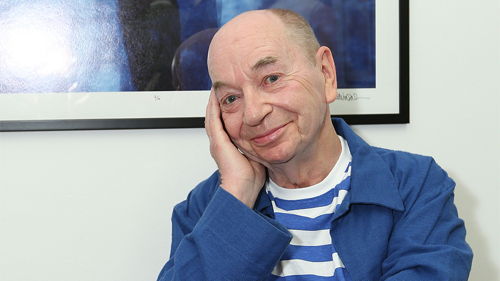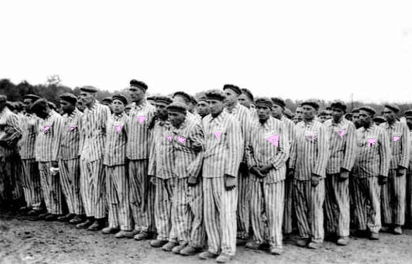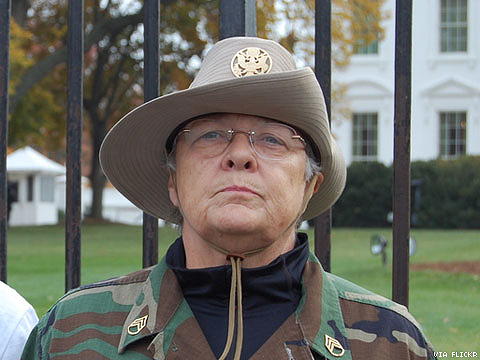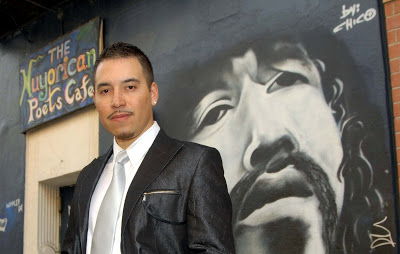|
presents THIS DAY IN GAY HISTORY based on: The White Crane Institute's 'Gay Wisdom', Gay Birthdays, Gay For Today, Famous GLBT, glbt-Gay Encylopedia, Today in Gay History, Wikipedia, and more …
Collected by Ted May 3 [{(o)}]|[{(o)}]|[{(o)}]|[{(o)}]| [{(o)}]|[{(o)}]
1863 – Hans von Tresckow, born in Neisse, Province of Silesia,(d.1934) was a German detective and for many years in Berlin was responsible for criminal offenses in connection with Paragraph 175. He was the oldest of seven children. His father Karl von Tresckow (1829-1889) was a Prussian lieutenant general. Tresckow attended grammar school, most recently in Darmstadt , where his father had been transferred. Tresckow did his military service from 1883-1884 as a one-year volunteer and later became a reserve officer. Financed by a family scholarship, he began studying law and economics, first in Koenigsberg, then in Berlin, where an influential uncle introduced him to the highest circles. In 1889 Tresckow applied to the police and in 1892, after completing his training, joined the criminal police (Germany). Due to lack of money, he also gave private lessons and wrote crime and hunting stories under the pseudonym Hans von Buckow for various magazines such as Westermanns Monatshefte. In April 1894 he married. As a commissioner Tresckow was from 1896 in Inspectorate B under Leopold von Meerscheidt-Hüllessem, whose position he took over after his death (by suicide). This inspectorate was also responsible for the homosexuality-related crimes, literally for "pederasty and related extortion". Allegedly Tresckow hadn't even known that there were homosexuals before he worked there. In his memoirs he wrote: "It was my duty to deal more closely with this matter, which I personally found to be normal only to be unsympathetic to people." For almost 30 years he was in close contact with the doctor, Sex researcher and co-founder of the homosexual movement Magnus Hirschfeld, and the two men respected each other. In 1922 Tresckow wrote to Hirschfeld: "The fact that I take a less favorable position than you when assessing homosexuals is probably due to the fact that you, as a doctor, have met more valuable personalities than I as a police officer." The gay movement was in close contact with Inspectorate B, so victims of extortion in connection with Section 175, which criminalized sexual acts between men, were advised to contact this inspectorate. Von Meerscheidt-Hüllessem had promoted this development, and so did Tresckow. Tresckow even received an annual special allowance for a separate office in his apartment, where he advised victims after work. In 1920 Hirschfeld certified that Tresckow had saved "hundreds of homosexual people from despair and suicide". On the other hand, the number of "pederasts and blackmailers" recorded by the police, later known as the Pink List, rose from 1900 to 1918 to over 1,000 people. Although Tresckow was for the abolition of the paragraph because he recognized the problem of extortion, reported extortions often ended with the conviction of the perpetrator and victim. The victims came from all walks of life and the extortion often resulted in suicide. During Tresckow's term of office, the scandal trials in connection with the Harden-Eulenburg affair (1907-1909) took place. In the murder of Friedrich Ferdinand Mattonet, he appeared in court as an expert witness. Tresckow's department was supposed to fulfill three functions — fighting criminal homosexual acts in accordance with Paragraph 175, preventing male prostitutes and homosexuals from appearing too publicly in the streets, and protecting homosexuals from extortion and other crimes — but ultimately the homosexual department only acted as a state monitoring and repression body towards homosexual prostitution. On the other hand, “pederast balls” with sometimes more than 1000 participants were held in Berlin during the German Empire and tolerated by the police. Tresckow's predecessor in office, von Meerscheidt-Hüllesem, even attended these events and had dances performed. In 1914 Tresckow went to the First World War as a volunteer . Wounded, he said goodbye to the army in 1919 . He moved with his wife to Rinteln , where he wrote his memoirs. He asked Magnus Hirschfeld for a review: "I have emphasized in various places in my book that I have found decent characters among homosexuals". Hirschfeld praised the book, but criticized Tresckow's attitude that homosexuals are not suitable for responsible positions in the civil service, also because he believed that he had discovered a "lack of national feeling" in many homosexuals: "They feel international and feel like cosmopolitans." The book, published by his son, became a bestseller. Unfortunately, the files with the data of the homosexuals compiled by his department were subsequently used by the National Socialist authorities to systematically pursue these homosexual men.
1877 – Baron Franz Nopcsa von Felső-Szilvás (d.1933) was a Hungarian-born aristocrat, adventurer, scholar, and paleontologist. He is widely regarded as one of the founders of paleobiology and Albanian studies. He was a great scientific mind that came to a tragic end with the murder of his male lover and his subsequent suicide. Nopsca was born into a wealthy Hungarian noble family in Transylvania, which was then part of the Austro-Hungarian Empire. While still a teenager, Franz and his sister found some dinosaur fossils on their family estate, a discovery that sparked Franz’s life-long interest in paleontology. He became famous for these hundred million year old fossilized remains, and his subsequent research and scholarly publications led him to be considered the father of modern paleobiology. Nopsca subsequently traveled south to Albania, then part of the Ottoman Empire, to conduct some digs for more dinosaur fossils. While there he became enchanted by the countryside and culture of the Albanians, and he soon dedicated himself to liberating Albania from the Ottomans in an effort to establish Albania as an independent country. Using his personal fortune to acquire weapons, he organized rebellious forces and led the Albanians in fighting against the Turks. At the end of the First Balkan War, Albania became an independent state in 1913 under the Treaty of London. This new Albania was to be a kingdom, but there was no native dynasty. In order to secure the recognition of the nation by other European countries, the Albanian Congress of Trieste was convened in 1913 to choose a nobleman to become king. Nopsca put forth the proposition that he would be an ideal choice as king, because he was of noble birth and had strong ties to the Austro-Hungarian Empire. However, the fact that he was homosexual and made no effort to hide it thwarted his dream from becoming reality.He flounced around in a black velvet cape and made his interest in men obvious. The Albanians quite naturally expected their king to marry and produce heirs, but Nopsca tried to use his sexual orientation to advantage. He suggested that Albania sell the title of “Queen of Albania” to the highest bidder, since he did not care which woman he would marry and sleep with. He agreed to produce an heir with whomever paid the highest price and use the money for badly needed infrastructure, such as building roads and hospitals. Although the Albanians were grateful for his role in liberating the people from the grip of the Turks, he was passed over as their king. Realizing he had no chance for success, the Baron withdrew his bid to become Albania's new king, and from that moment his life took a nosedive. Transylvania, which had been part of Hungary for nearly a thousand years, was annexed by Romania after World War I, and Baron Franz lost his family estate and fortune in the transfer. For the first time in his life he needed to support himself, so he and his long-time Albanian lover/secretary, Bayazid Doda, moved to Vienna, where the Baron taught paleontology at the university.
He lapsed into severe fits of depression. His financial humiliation was so extreme that by the end of his life his household servant had not been paid for four months. To cover his debts, he sold his fossil collection to the Natural History Museum in London, which caused his depression to worsen. Finally, after selling many of his prized books in 1933, he drugged Doda’s tea and fatally shot first his lover and then himself. In a letter left for the police, he explained that his decision to commit suicide was the result of a nervous breakdown. His letter stated: “The reason that I shot my longtime friend and secretary, Mr. Bayazid Elmas Doda, in his sleep without his suspecting at all is that I did not wish to leave him behind sick, in misery and without a penny, because he would have suffered too much.”
1912 – May Sarton, nee Eleanor Marie Sarton, American poet and author, born in Belgium (d.1995); May Sarton wrote some of the most beautiful lyric poetry of the 20th century. Her poems are accessible, free of self-conscious experimentation, and divorced from membership in any particular school of poetry. Many of them are pellucid reflections of the Lesbian experience, as are her novels. Her reputation was soundly established before she published Mrs. Stevens Hears the Mermaids Singing (1965). She feared, rightly, that writing so strongly about Lesbianism would lead to a diminution of the value of her work. "The fear of homosexuality is so great that it took courage to write 'Mrs. Stevens Hears the Mermaids Singing'," she said in the Journal of Solitude (1973), "to write a novel about a woman who is not a sex maniac, a drunkard, a drug-taker, or in any way repulsive, to portray a homosexual who is neither pitiable nor disgusting without sentimentality ..." Read this remarkable novel and read the Journal, where May Sarton reveals, not surprisingly, that she is Mrs. Stevens.
1912 – Virgil Fox (d.1980) was an American organist, known especially for his flamboyant "Heavy Organ" concerts of the music of Bach. These events appealed to audiences in the 1970s who were more familiar with rock 'n' roll music and were staged complete with light shows. His many recordings made on the RCA Victor and Capitol labels, mostly in the 1950s and 1960s, have been remastered and re-released on compact disc in recent years. They continue to be widely available in mainstream music stores. During the Second World War, Fox enlisted in the Army Air Force and took a leave of absence from Brown Memorial Presbyterian Church in Baltimore where he was organist and the Peabody where he taught. He was promoted to staff sergeant and played various recitals and services. After having played more than 600 concerts while on duty, he was discharged from the Army Air Force in 1946. From 1971 until 1975, Fox performed his famous "Heavy Organ" concerts in auditoriums, popular music concert halls, and other nontraditional organ music venues, touring around the United States with an electronic Rodgers Touring Organ and, later, a custom-designed Allen Organ. Virgil Fox was one of the rare organists to perform on nationally televised entertainment programs in the 1960s and 1970s, such as The Mike Douglas Show, The Ed Sullivan Show, and CBS Camera Three, bringing organ masterworks to mass audiences as no other organist has done before or since. His last commercially released recording was made at his farewell Riverside Church concert on May 6, 1979. Fox's 50th year of performing began when he appeared with the Dallas Symphony in September 1980, in what was to be his final public performance. One month later, he died in Palm Beach, Florida of prostate cancer, for which he had undergone unsuccessful surgery in 1976. Virgil Fox (The Dish): An Irreverent Biography of the Great American Organist by Marshall Yaeger and Richard Torrence (2001), a compendium of reminiscences by contemporaries of Virgil Fox, included an unpublished autobiography by Ted Alan Worth, a student of his. Worth wrote of Fox's sexual orientation, "To anyone who was gay, there was no question as to what Virgil was." One review of The Dish stated, "Fox's homosexuality, and its implications on his life, is dealt with in admirably straightforward terms."
1913 – William Inge, American playwright (d.1973); An American playwright and novelist, whose works typically feature solitary protagonists encumbered with strained sexual relations. In the early 1950s, he had a string of memorable Broadway productions, and one of these, Picnic, earned him a Pulitzer Prize. With his portraits of small-town life and settings rooted in the American heartland, Inge became known as the "Playwright of the Midwest." The Last Pad is one of three of Inge's plays that either have out gay characters or address homosexuality directly. The Boy in the Basement, a one-act play written in the early 1950s, but not published until 1962, is his only play that addresses homosexuality overtly, while Archie in The Last Pad and Pinky in Where's Daddy? (1966) are Gay characters. Inge himself was closeted. Inge's The Last Pad premiered in Phoenix, Arizona in 1972. Originally titled The Disposal, the world premiere of The Last Pad was produced by Robert L. (Bob) Johnson and directed by Keith A. Anderson through the Southwest Ensemble Theater. The production starred Nick Nolte and included Jim Matz and Richard Elmore (Elmer). The production moved to Los Angeles and opened just days after Inge committed suicide. During the early 1970s, Inge lived in L.A., where he taught play writing at UC Irvine. His last several plays attracted little notice or critical acclaim, and he fell into a deep depression, convinced he would never be able to write well again. He committed suicide by carbon monoxide poisoning in 1973.
1922 — Robert De Niro Sr. (d.1993) was an American abstract expressionist painter and the father of actor Robert De Niro. Robert was the eldest of three children; he and siblings John and Joan were raised in Syracuse. De Niro studied at the renowned Black Mountain College under Josef Albers from 1939 to 1940. While Albers' highly analytical approach to painting did not appeal to De Niro's more instinctive style, the experience and international perspective of the Bauhaus master nonetheless left a lasting impression. De Niro studied with Hans Hofmann at his Provincetown, Massachusetts summer school. Hofmann's teaching on Abstract Expressionism and Cubist formalism had a strong influence on De Niro's development as a mature artist. At Hofmann's summer school, he met fellow student Virginia Admiral, whom he married in 1942. The couple moved into a large, airy loft in New York's Greenwich Village, where they were able to paint. They surrounded themselves with an illustrious circle of friends, including writers Anaïs Nin and Henry Miller, playwright Tennessee Williams, and the actress and famous Berlin dancer Valeska Gert. Admiral and De Niro separated shortly after their son Robert De Niro Jr. was born in August 1943 after De Niro came out as gay. In 1944, De Niro had a relationship with the poet Robert Duncan. De Niro had his first solo exhibition at Guggenheim's gallery in April and May of the following year. At that point, he was primarily working in an abstract manner, often with figural references. Much of his work from this period was lost in a studio fire in 1949. De Niro Sr. died of cancer on the morning of May 3, 1993 (his 71st birthday), at his Manhattan home. The 1993 film A Bronx Tale was dedicated to De Niro after his death; it was the directorial debut of De Niro Jr. In 2010, De Niro Jr. announced the creation of the Robert De Niro Sr. Prize, an annual $25,000 prize administered by the Tribeca Film Institute and funded by De Niro Jr. that "focuses on a mid-career American artist devoted to the pursuit of excellence and innovation in painting." De Niro Sr. is the subject of the 2014 short documentary Remembering the Artist. According to De Niro Jr., "The thought of what he's done, all his work, I can't not but make sure that it's held up and remembered... So I just want to see him get his due. That's my responsibility and he used to always say that artists are always recognized after they're long gone."
1938 – Lindsay Kemp (d.2018) was a British dancer, actor, teacher, mime artist and choreographer. Kemp's father, a seaman, was lost at sea in 1940. According to Kemp, he danced from early childhood:
"I'd dance on the kitchen table to entertain the neighbours. I mean, it was a novelty in South Shields to see a little boy in full make-up dancing on pointe. Finally it got a bit too much for my mother, and she decided to send me to boarding school at the age of eight, hoping that it would knock some sense into me."
Kemp was raised in Yorkshire and attended Bradford Art College before studying dance with Hilde Holger and mime with Marcel Marceau. Kemp formed his own dance company in the early sixties and first attracted attention with an appearance at the Edinburgh Festival in 1968. Despite thirty years of worldwide touring with his company and the occasional film and television appearances, Kemp is ironically best known by devotees of Kate Bush and David Bowie, both former students and, briefly, members of Kemp's company (Bowie as a performer, Bush as a wardrobe assistant). Indeed, it is rumoured - a rumour begun by Kemp himself - that he had a brief but volatile affair with Bowie in the late sixties, culminating in a failed suicide attempt more notable for its melodrama than sincerity of purpose. He staged and performed in David Bowie's Ziggy Stardust concerts at London's Rainbow Theatre in August 1972, and, with Jack Birkett, appears in the promotional video for Bowie's single John, I'm Only Dancing. Kemp's film roles included a dancer and cabaret performer in Derek Jarman's Sebastiane (1976) and Jubilee (1977) respectively, a pantomime dame in Todd Haynes' Velvet Goldmine (1998) and the wonderfully camp pub landlord Alder MacGregor in Anthony Shaffer's The Wicker Man (1973). During the early 70s, Kemp was a popular and inspirational teacher of dance/mime with a regular two and a half hour session at the Dance Centre in Floral Street, Covent Garden. This was in the days before the Dance Centre became an up-market private club, and anyone could and did drop in. Classes were sometimes taken by Lindsay's unsighted friend Jack Birkett (aka 'The Incredible Orlando') whose flamboyance and mastery was such that uninitiated newcomers could go through a whole session without realising that they were being taught (and corrected) by a blind teacher. It was said that Lindsay had 'saved' Birkett from despair by re-training him after he lost his sight. At the time of his death Lindsay Kemp had been living in Livorno, Italy.
1938 – A California appellate court overturns a sodomy conviction that was obtained merely upon proof that the defendant was Gay.
1945 – Died: Heinrich Roth, a few days after the death of his long-time partner, Carl Bruns. These were two ordinary homosexual German men who fell victims to the Nazi regime. The gay pogrom in Germany started in the summer of 1937. The Gestapo launched a systematic crack-down in the mid-1930s, actively entrapping gay men. The Nazis created a vicious protection racket that allowed gay bar owners to remain in business, on condition that they handed over names of customers on a regular basis. Landlords were bribed to inform on tenants. If someone at work didn't like a bachelor co-worker, all he had to do was to go to the Gestapo and suggest a sexual advance had been made, and the next day the co-worker would be gone. It mattered little whether there was any truth to the allegations. In the city of Hamburg, Gestapo men in leather trench coats entered the city's most famous department store, Der Alsterhaus, during business hours and rounded up about 40 gay employees, who were hauled off in vans waiting out on the street. Raids occurred with growing frequency in the late 1930s. What followed were weeks and months of 'protective custody' and transfers to mental asylums for 'curative treatment' and eventual sentencing to imprisonment in concentration camps. Many were 'offered' castration, with a vague promise of leniency, as an alternative to imprisonment. With Prussian thoroughness, the Nazis documented every detail of the lives of those they rounded up. Those documents provide chilling insights into a hitherto unknown story. After German unification, hundreds of thousands of case histories were released and historians have spent the least few years sifting through them. Their findings are still just being published, and have shocked even those historians who knew that atrocities had occurred, but were surprised by the extent of them. Among these targetted gay Germans were Carl Bruns and Heinrich Roth, a gay couple who ran an upmarket men's clothing shop in central Hamburg, right across the street from Gestapo headquarters. Bruns and Roth were arrested in 1940 and, after months of pre-trial detention, they were sent to concentration camps near Hamburg. By some miracle, both men survived until spring 1945, when the camps were being liberated by Allied forces. But it was then that the final tragedy struck. Auschwitz was liberated by the Red Army in early 1945, and the pictures of skeletal camp inmates shocked the world. In response, Heinrich Himmler issued an order to all camp commandants that they were to ensure that no camp inmates should ever fall into the hands of Allied forces. He didn't specify what they should do, leaving it in the hands of camp commandants. Some commandants at Dachau and other camps began gassing all surviving inmates so that none would be left alive. Others began evacuating their inmates. Thus Bruns and Roth were forced to leave their camp near Hamburg on a forced march to the Baltic Sea, 100 kilometers (62 miles) away, where the converted cruise liner Cap Arcona was at anchor. The Allies were advancing on all fronts. Everyone knew that the war was over. All the inmates had heard the news. British forces had dropped leaflets saying they would be in Hamburg within hours. And yet these men were sent on a death march to the sea. Stragglers were machine-gunned to death. Others collapsed and died of exhaustion. Bruns died along the way. Roth made it to the Baltic Sea docks where the Cap Arcona was waiting and he was herded aboard along with thousands of other inmates. Two other ships were also used in this way, the Thielbek and the Athen. The British RAF was conducting intensive air raids to pave the way for ground forces, which were only a few miles away. RAF fighter-bombers had been told that Nazi officials were seeking to flee Germany aboard a big ship disguised as a refugee vessel. On 3 May 1945, four days after Hitler's suicide but four days before the unconditional surrender of Germany, the RAF planes came in and bombed and strafed the Cap Arcona, setting it ablaze and sending it to the bottom. Those inmates who managed to dive into the water were either killed by the bombs and strafing from the planes or else were machine-gunned by Gestapo men as they tried to climb ashore. A handful found shelter in reeds along the shore and were found shivering in the water by British soldiers a few hours later. Roth was not among them. There were 4,500 prisoners on board the Cap Arcona, 2,800 prisoners on board the Thielbek, and 1,998 prisoners on board the Athen. 350 were rescued from the Cap Arcona, 50 were rescued from the Thielbek and all the 1,998 prisoners from the Athen survived. A total of 7,500 people were killed in the air-raid. The British who were seen as potential rescuers by the concentration camp prisoners turned out to be their unwitting excecutioners, although there is evidence to suggest that the SS planned to sink the Cap Arcona, and the other two other ships, to 'destroy the evidence' and remove potential witnesses to their atrocities. According to documents at the Dutch Institute of War Documentation (NIOD), the government of Sweden had warned the British government that prisoners were aboard the ships. The British government is keeping its documents relating to the attack on the three ships closed until 2045.
1948 – Miriam Ben-Shalom is an American educator, activist and former Staff Sergeant in the United States Army. After being discharged from the military for homosexuality in 1976, she successfully challenged her discharge in court and returned to military service in 1987, the first openly-gay or lesbian to be reinstated after being discharged under the military's policy excluding homosexuals from military service. She served until 1990 when the Army succeeded in terminating her service after prolonged judicial proceedings. In 1974, Ben-Shalom enlisted in the United States army reserve and joined the 84th Training Division. In 1975, she read the cover story of Time magazine's interview with Leonard Matlovich, a Vietnam War Air Force veteran who decided to come out of the closet as a homosexual and was fighting his discharge. Although Ben-Shalom was out to her commander, the commander made no move to dismiss her until, after graduating from drill sergeant's school, she appeared on local television and outed herself as lesbian. Her commander filed discharge proceedings against her, and she was honorably discharged in 1976. Ben-Shalom took the Army to court to overturn her dismissal, and in 1980 Judge Terence Evans of the U.S. District Court in Chicago ruled that her dismissal violated the First, Fifth and Ninth Amendments of the U.S. Constitution based upon testimony that she was only dismissed because of her statement to the press. The Army refused to comply with the ruling, and the case dragged on until 1987 when the U.S. Court of Appeals in Chicago confirmed the previous ruling and forced the Army to comply with the ruling by threatening contempt of court fines. Ben-Shalom reenlisted in September 1988, but the Army appealed the decision and finally won an August 1989 decision from Judge Harlington Wood, Jr. that ruled against Ben-Shalom by ruling her statement to the press as an admission of guilt in violating military policy. The U.S. Supreme Court declined to hear the her appeal of the case on February 26, 1990, and Ben-Shalom's military career ended. Ben-Shalom was one of six LGBT veterans who founded the Gay, Lesbian and Bisexual Veterans of America (GLBVA), today known as the American Veterans for Equal Rights. She continued to participate in a number of protests against the military policy excluding homosexuals from service and in 1993 protested the military's new "Don't ask, don't tell" policy by joining David Mixner in chaining herself to the White House fence. After a long period of work as a teacher, she returned to direct action and was arrested on November 15, 2010, in uniform after chaining herself to the White House fence along with other participants, including Dan Choi. A resident of Milwaukee with her life partner, Karen Weiss, she also serves as a full-time tenured instructor of English with the Milwaukee Area Technical College.
1955 – A California appellate court upholds the oral copulation conviction of a man for acts with a physically disabled man, saying "the incident was characteristic of such offenses."
1971 – Emanuel Xavier is an American poet, spoken word artist, novelist, editor, and activist born and raised in New York City, in the Bushwick area of Brooklyn. Of Puerto Rican and Ecuadorian ancestry, he emerged from the neo-Nuyorican spoken word movement to become a successful writer and advocate for gay youth programs and Latino gay literature. Once a street hustler and drug dealer, he has conducted spoken word poetry workshops and produced benefits and events for youth organizations around the United States. Xavier's father abandoned his mother after learning she was pregnant. At the age of three, Xavier was the victim of child sexual abuse by a relative. At age 16, he came out to his mother and was thrown out of his house. Soon after, he became a hustler. He then attended St. John's University (New York City) for several years, dropping out after receiving his associate's degree in communications. He worked for a local drug dealer and made a living by selling drugs at popular New York City gay nightclubs, including The Sound Factory and Roxy NYC. Later, after leaving the club scene, he became employed at a bookstore where he discovered his passion for writing and turned his life around. He has said that he viewed poetry as an "outlet to unleash pain and anger." Xavier self-published his debut poetry chapbook, Pier Queen, in the fall of 1997 through his own independent publishing house, Pier Queen Productions. Regarding his career, he has been quoted to say,
"I think at the beginning it was about me, about sharing my story. But as it evolved, it became more about the larger picture, hoping to inspire others not to follow that path, that it wasn't the only way to go if you were gay, a person of color, and thrown out because you were gay. That it wasn't the only option." In October 2005, Xavier was brutally attacked by a group of about twenty young men in New York City, in the Bushwick area of Brooklyn. Despite various rumors about the attack—some suggested it stemmed from his granting the Latin Kings gang permission to publish one of his poems, "Waiting For God", which (ironically) dealt with police brutality while others suggested it was simply another gay bashing—Xavier believed the crime was a random act of violence. He later captured his experience in the poem "Writer's Block".
1976 – A Chorus Line wins the Pulitzer Prize for drama.
1978 – The Ohio Supreme Court decides that the state's age of consent is not 16 as the legislature intended, but actually 15 years and 1 day, because of the awkward language used in writing the statute.
1989 – Mary Lambert is a Seattle-based singer-songwriter and spoken word artist. She worked with Macklemore and Ryan Lewis on a track on their album The Heist. Lambert is the featured singer and songwriter of their gay rights single, "Same Love". Lambert's contributions to "Same Love" draw upon her experiences as "a lesbian growing up in a tumultuous, Christian upbringing." Lambert took the content she created for "Same Love" and used it to develop the song "She Keeps Me Warm" which she released on July 30, 2013. A music video was released on Vevo on August 24. Lambert was sexually abused as a child, and has described herself as "end[ing] up being a depressed eight-year-old". She was raised as a Pentecostal, but her family was expelled from the church when she was six after her mother came out as lesbian. Lambert later became an Evangelical Christian, attending Mars Hill Church beginning when she was in high school. She struggled for many years to reconcile her Christianity and her sexuality, even after coming out as lesbian at the age of 17. She eventually concluded that homosexuality does not conflict with Christianity, and that condemnation of gay people is antithetical to the Christian message. Lambert taught herself how to play piano and write songs at age 6, as an escape from her traumatic and abusive household. Lambert's songs, often emotionally charged, have been considered a mix of Adele, Tori Amos, and James Blake. Her shows are described as "safe spaces where crying is acceptable and even encouraged." Her debut EP, Letters Don't Talk, was released on July 17, 2012, and peaked at number 18 on the iTunes Singer/Songwriter charts. On December 17, 2013, Lambert released her second EP, Welcome to the Age of My Body, under Capitol Records. Lambert's studio album, Heart On My Sleeve, was released on October 14, 2014, and debuted at number 29 on the Billboard 200.
2013 – After same-sex marriage legislation passes in both houses of Rhode Island’s legislature, Governor Lincoln Chafee signs it into law. The new law, legalizing same-sex marriage, goes into effect on August 1, 2013.
|
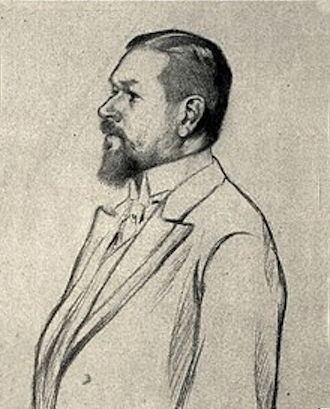
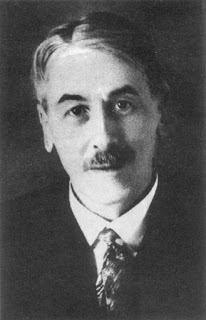
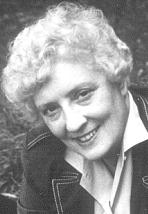
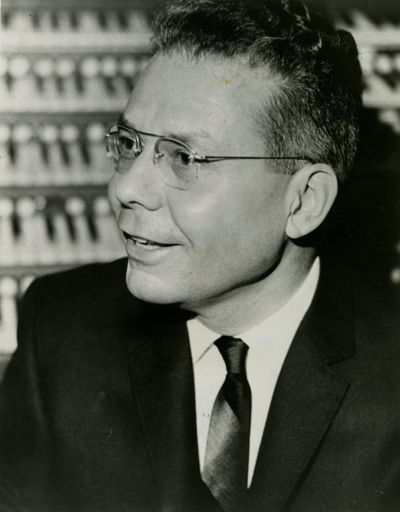
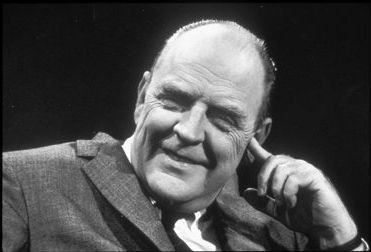
 Added 2024
Added 2024
